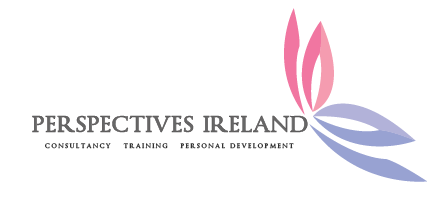
When Being Real is More Important than Working Hard
Blog post written by Rudi Eide, Psychologist, Cand. Psychol., Akershus University Hospital, Norway.
It is well known that the quality of the therapeutic relationship is linked to positive outcomes in psychotherapy. You don’t have to plow through many books, workshops or research articles to see that the concept of the working alliance is lifted up as one of the most important parts of an effective helping relationship. The working alliance is usually defined as working together with clearly defined goals and tasks (Bordin, 1979).
Although the working alliance is a concept that has gathered a lot of empirical attention, it’s a mistake to assume that it captures the whole picture of a good helping relationship. In fact, the working alliance is just one of many relationship behaviors that has a proven impact. Other effective behaviors that contribute to a helping relationship include empathy, emotional expression, genuineness and cultivating a real relationship (Norcross & Lambert, 2019). Let’s have a closer look at the real relationship, which is a concept that seems to closely align with PBBT.
The real relationship is defined as ways of being that are rooted in genuineness, realism, authenticity and the degree to which the participants can be truly themselves (Gelso, 2009). Although this is often an overlooked part of the helping relationship, it’s actually as good a predictor for successful therapy as the working alliance (Vaz et al., 2023). Although it’s probably not useful to pit these concepts against each other, it may be useful to shift the emphasis slightly toward the “being real” aspect of the relationship and away from “working hard”.
In PBBT we want to be careful with prescribing goals and tasks as we don’t want to strengthen unhelpful approach behaviors. Let’s say you have a client who comes in with self -relating around “I’m not good enough” and their dominant approach behavior is about self-improvement. If you start the therapy by working hard on defining goals and tasks for the client, then this could easily be drawn into the self-improvement agenda. Sadly, this would likely serve to strengthen the belief that they’re not good enough as a person.
The over-focus on goals and tasks can also put the therapist under pressure. Let’s imagine a therapist who attended a workshop about the critical importance of establishing clear goals and tasks for the client. The therapist could derive “If I set goals, then I’m a good therapist/If I don’t set goals, then I’m a bad therapist”. Since it’s typical of therapists to put too much of their self-worth into being a good therapist, then this could potentially have a harmful impact. If “bad therapist” equates to “bad person” then the person playing the therapist role would push for goal clarity with their self-worth on the line. One could easily imagine this therapist becoming pushy towards the client in a way that actually does damage to a healthy collaboration.
By focusing more on building a real relationship based on honesty, genuineness and self-expression, a different path to change occurs. You can start to explore how the change agenda itself is what needs to change. By letting go of the pressure to work hard as therapists, we stop being pushy and impatient. We can slowly help the client see that their need for self-improvement hides a painful message about themselves. By softening the “working hard” agenda, we can open up a space where the client can relate to the painful messages in their history in a completely new way. All this is founded on the idea that maybe sometimes being real is more important than working hard.
References
Bordin, E. S. (1979). The generalizability of the psychoanalytic concept of the working alliance. Psychotherapy: Theory, research & practice, 16(3), 252.
Gelso, C. J. (2009). The real relationship in a postmodern world: theoretical and empirical explorations. Psychotherapy Research, 19(3), 253–264. doi:10.1080/10503300802389242
Norcross, J. C., & Lambert, M. J. (Eds.). (2019). Psychotherapy relationships that work: Volume 1: Evidence-based therapist contributions. Oxford University Press.
Vaz, A. M., Ferreira, L. I., Gelso, C., & Janeiro, L. (2023). The sister concepts of working alliance and real relationship: A meta-analysis. Counselling Psychology Quarterly, 1-22.




